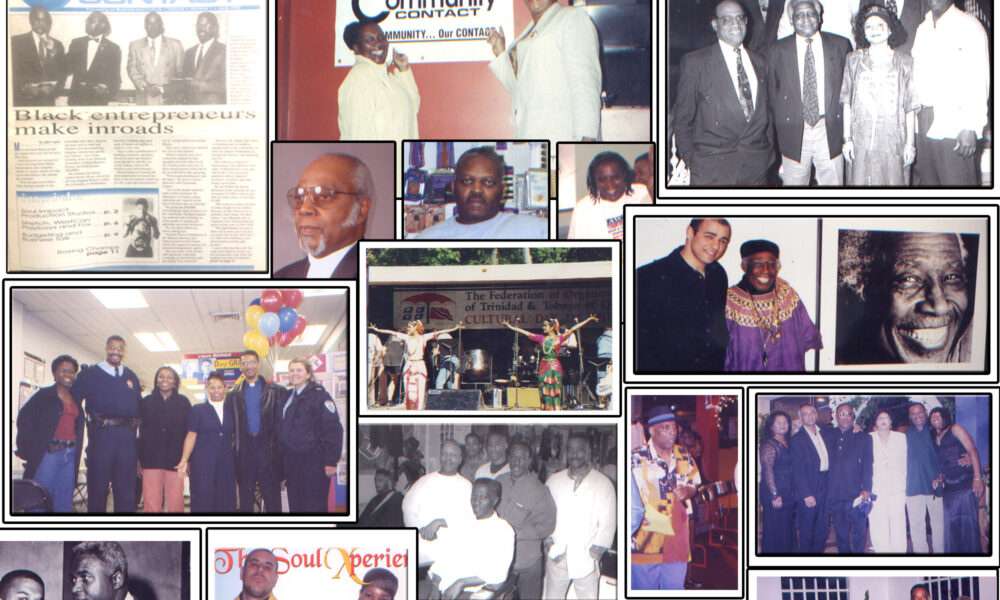Egbert Gaye, the founder of one of the few Black-run newspapers in Montreal, and the only one to continue to operate over past decades, passed away on June 4, 2023, leaving behind an incredible legacy for Montreal’s Black community. His newspaper, Montreal Community Contact, provides media representation for Montreal’s English-speaking Black and Caribbean communities in a province that fails to address their needs and respect their history and culture. Gaye’s life and decades of accomplishments in journalism should be celebrated, but, to truly honour his work, Black journalism in Montreal and Quebec still needs greater support and recognition. The Community Contact made strides for Black anglophone journalism through its one-of-a-kind voice, and the loss of its founder reminds us of the pressing need to represent the voices of Black anglophones in Quebec.
Since the first newspapers in Canada originated in the mid-1700s, Canadian journalism continues to privilege white writers over writers of colour. Despite radical Black journalists who confronted discrimination and forged their own paths by creating independent newspapers to educate their communities—such as Mary Ann Shadd Cary, who became the first Canadian woman to publish a newspaper with the release of The Provincial Freeman in 1853—Black Canadians continue to be barred from fully participating in journalism due to persisting institutional and systemic barriers. As a result, in 2023, 78 per cent of journalists in Canada identified as white, with Black journalists significantly more likely to work in a part-time role. However, the lack of hiring opportunities and full-time job stability is still only one barrier for Black anglophone journalists in Quebec. In the 1950s and 60s, the provincial government implemented a series of policies that specifically targeted Black anglophones, pushing them out of their established spaces and forging divisions between the anglo- and francophone communities. Contemporary language laws like Bill 96 carry on this discriminatory legacy and speak to the province’s deeply-rooted xenophobia, where the French language is only acceptable when spoken a certain way.
Gaye’s establishment of Community Contact in 1992 contributed to building the foundations for a more diverse variety of voices in the world of Quebec journalism, by amplifying not only the voices of Black Montrealers, but Black anglophone Montrealers, who face more discrimination and barriers to accessing essential services in the city such as mental health. The Community Contact created a space for Black struggles to be represented, and for aspiring Black writers to make their first appearance in the journalism world outside of the majority-white mainstream media. Young contributors to the newspaper expressed that Gaye never doubted their potential and always made sure to tell them that there was a space for them. He shaped an entire generation of Montreal Black journalists, who wrote about topics relevant to Montreal’s Black community, ranging from traditional Caribbean customs to the housing and labour shortages in Canada.
While Gaye addressed numerous political and social issues in his own paper, such as the politics of division in Quebec thanks to leaders such as François Legault, he also contributed to other forms of Montreal-based media such as CJAD 800 Radio. Black anglophone journalism is a historic necessity for Black expression in Quebec, where Black anglophones make up an even smaller portion of the population. The Montreal Community Contact managed to achieve success by reaching a wide audience in a field that is deeply inhospitable towards Black journalists, Black media, and Black communities. Gaye has left a mark on the Montreal journalism community at large, but his accomplishments require new commitments to Black journalism in Quebec.
More than 30 years after its creation, there is yet to be another Black-owned newspaper in Montreal. The Community Contact is undeniably a beacon of hope for Black journalists in Quebec, and opens the door to future Black anglophone journalists to make it into the field. But more needs to be done to truly emphasize Black anglophone media voices. In a time so critical for the survival of Black anglophone journalism in Quebec, meaningful provincial initiatives during Black History Month should include funding alternative media sources that platform Black voices. Preventing the disappearance of all of Gaye’s accomplishments also should be a priority for McGill, in which Black students need better opportunities for them to make their own space in white-dominated fields, elevating their voices instead of letting them fade in the background. For this, it is necessary that McGill engages in direct conversations with Black student groups on campus and acts on their demands to include their history in the university.








